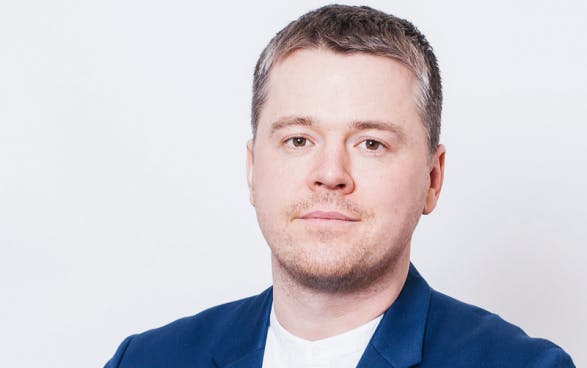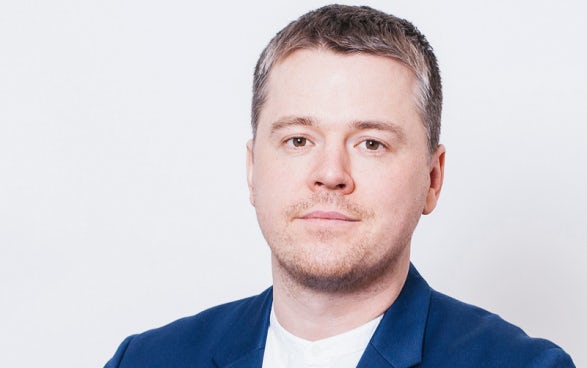Today’s ‘Day in the Life’ features Matt Lynch, CEO of digital marketing agency, Feed. We caught up with Matt to discuss how the Covid-19 pandemic has impacted his day-to-day working life.
Please describe your job: What do you do?
At Feed, I’m responsible for the growth and security of our company. My day-to-day is spent supporting the executive team and helping our clients solve problems and achieve their goals. I’m also Founder and CEO of Feed’s parent company, The Feed Group, where I’m responsible for long-term financial planning, M&A, and sponsoring entrepreneurship within the company. I’m passionate about building environments that are inclusive and full of opportunity for everyone, so I take personal responsibility for leading our culture and values.
How has your typical day been impacted in the short term by the pandemic?
We are incredibly fortunate not to have been adversely affected by the pandemic. As a business, we were well prepared to work from home, given how virtually connected our global offices already were. Our staff have responded to the situation impeccably, and our clients have supported us completely.
My schedule has changed – international travel has dropped from several trips a month to zero. While I do miss the human connection that these trips offer (which I will resume on a reduced level when I can), my focus is benefiting from me being still and from the extra time with my family. I was travelling too much.
I also shortened my commute to 15 minutes by opening a small office close to where I live in rural Bedfordshire for myself and a small team. Pre-COVID, I was travelling one and a half hours each day into London. Now, I’ve gotten to immerse myself in my local community and have created a more rewarding work/life balance much closer to home.
What are your favourite tools and techniques to help you get your work done at the moment?
Things pre-COVID had become a bit too overly scheduled, and meetings were maximized for efficiency. The human side of communication was slipping. But, something about tragedy really helps you realign with what’s important. I’m now prioritising and enjoying the time I spend connecting with people. With fewer distractions, I can focus more on my team and the issues they’re facing. We can work through challenges together. This deep sense of connection is the most powerful tool.
Which companies have impressed you during the pandemic?
I’m beyond impressed by the renewed sense of entrepreneurship at all ends of the economy, from billion-dollar corporations that recalibrated their production lines to create ventilators, to the local restaurant that turned their dining room into a community shop. Anyone who stood up and wouldn’t be defeated, and anyone who put the common good first – it’s all inspiring. I’ve been left so humbled, motivated, and energised.
What changes are you making to help your company connect with how people are feeling and experiencing the pandemic?
Although we were prepared with the logistics of working from home, we were hugely aware that transitioning away from the office was going to be a big strain on the mental wellbeing of our employees. We quickly put together a WFH Hub on our intranet which outlined useful tools and resources to help with the adjustment. Topics ranged from desk yoga YouTube videos to Headspace trials.
Most importantly, however, we updated our existing Feed x Wellbeing Initiative to include tips on how to keep your mental wellbeing in check and maintain boundaries between home and work life.
Keeping up the interaction between staff was also important, so we implemented start- and end-of-day video calls. And, we created virtual lunch rooms where colleagues could connect over a meal. This allowed us to carry on our tradition of Pizza Lunch Fridays, which we all now do from our own homes.
Our biggest successes have been staff-driven though. I’ve been really impressed with how the team is staying connected to one another with things like secret DJ competitions and partaking in the #gettymuseumchallenge.
What trends have you seen in the last few weeks in your sector?
We’re seeing a rise in the need for brands to connect with customers on a more emotional level. Customers care more about where their products come from, and they are taking into consideration a brand’s ethical morals, racial factors, and employee treatment. This scrutiny can only be a good thing, and brands want to be sure they’re informing customers about these issues in a more meaningful way.
What advice would you give a marketer right now?
Now more than ever, listen to your customers. Treat them with humanity, as we’re all adjusting. I’d also recommend thinking about the “new normal” not as a negative thing, but instead as an opportunity to be better than we were before.
What does long-term planning and strategy look like now at your company?
The long-term strategy for Feed remains unchanged. We understand that immediate milestones sometimes need to shift, but we have enough data to effectively manage any short-term fluctuations. Our end goal remains the same: help hungry brands stand out at speed and sell at scale.








